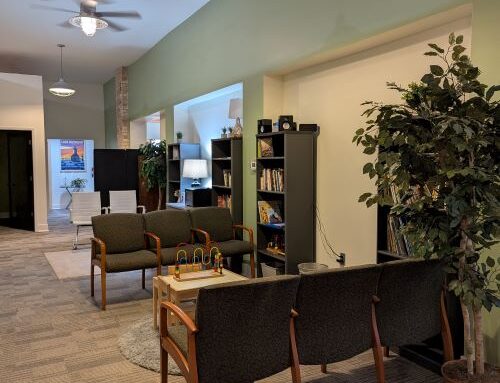Addressing PTSD in Veterans: Counseling Approaches
At White Oak Counseling and Recovery Center, we have a profound respect for veterans who have served our country with bravery and dedication. Unfortunately, many veterans return home with invisible wounds, such as Post-Traumatic Stress Disorder (PTSD). This blog post explores effective counseling approaches for addressing PTSD in veterans, highlighting the importance of tailored support and compassionate care.
Understanding PTSD
PTSD is a mental health condition triggered by experiencing or witnessing a traumatic event. For many veterans, this can include combat exposure, military training accidents, or other life-threatening situations. Symptoms of PTSD may include flashbacks, nightmares, severe anxiety, and uncontrollable thoughts about the event. Understanding PTSD is the first step toward effective treatment and recovery.
The Impact of PTSD on Veterans
PTSD can significantly affect a veteran’s life, disrupting relationships, work, and daily functioning. Common issues include:
- Emotional Numbness: Difficulty in expressing or feeling emotions.
- Hyperarousal: Being easily startled, feeling tense, or having difficulty sleeping.
- Avoidance: Avoiding places, people, or activities that remind them of the trauma.
- Negative Thoughts and Feelings: Persistent negative beliefs and feelings about oneself or others.
Recognizing these impacts is crucial for developing effective counseling strategies.
Effective Counseling Approaches for PTSD
Several counseling approaches have proven effective in helping veterans manage and overcome PTSD. Here are some key methods:
Cognitive Behavioral Therapy (CBT)
CBT is a widely used therapy that helps individuals identify and change negative thought patterns and behaviors. For veterans with PTSD, CBT can assist in:
- Understanding and Changing Thoughts: Challenging negative thoughts related to the trauma and replacing them with more realistic ones.
- Exposure Therapy: Gradually facing and overcoming fears related to the trauma in a controlled and safe environment.
Eye Movement Desensitization and Reprocessing (EMDR)
EMDR is a specialized therapy designed to help individuals process and integrate traumatic memories. It involves guided eye movements while recalling traumatic events, which can reduce the emotional impact of these memories. EMDR has been particularly effective for many veterans experiencing PTSD.
Group Therapy
Group therapy provides a supportive environment where veterans can share their experiences and learn from others facing similar challenges. This sense of community can reduce feelings of isolation and promote healing through shared understanding and support.
Medication Management
In some cases, medication may be prescribed to manage symptoms of PTSD, such as anxiety, depression, or insomnia. It is essential for veterans to work closely with their healthcare providers to find the most effective medication regimen.
The Role of Family and Community Support
Family and community support are vital components of a veteran’s healing journey. Encouraging open communication and providing a stable support system can significantly enhance the effectiveness of counseling approaches. Here are some ways to foster this support:
- Education: Educating family members about PTSD and its effects can promote empathy and understanding.
- Involvement: Involving loved ones in the counseling process can strengthen relationships and provide additional support for the veteran.
- Community Resources: Utilizing community resources, such as veteran support groups and outreach programs, can provide additional layers of support and connection.
The Power of Faith and Spirituality
For many veterans, faith and spirituality play a crucial role in their healing journey. Incorporating spiritual practices, such as prayer, meditation, and scripture reading, can provide comfort and guidance. Scriptures like Psalm 34:18 (“The Lord is close to the brokenhearted and saves those who are crushed in spirit.”) remind us of the healing power of faith.
Conclusion
Addressing PTSD in veterans requires a comprehensive and compassionate approach that recognizes the unique challenges they face. At White Oak Counseling and Recovery Center, we are dedicated to providing tailored support and effective counseling approaches to help veterans heal and reclaim their lives. By combining evidence-based therapies, family and community support, and spiritual guidance, we can empower veterans to overcome PTSD and find peace and fulfillment in their post-military lives.
If you or a loved one is struggling with PTSD, please reach out to us at White Oak Counseling and Recovery Center. We are here to support you on your journey to healing and recovery.
Contact





